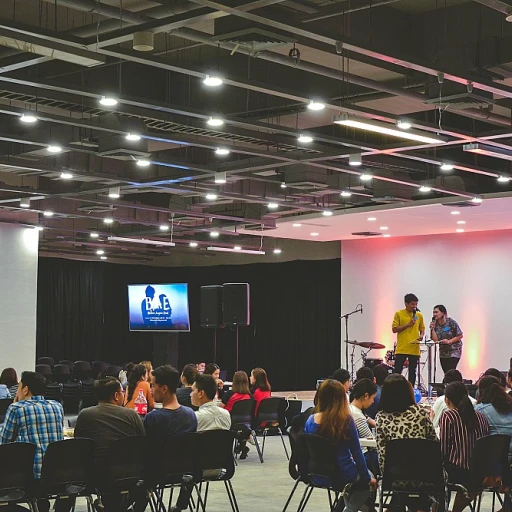Understanding Kin Care Policies in California
California’s Approach to Kin Care
Navigating the realm of kin care policies in California can be quite intricate for both employers and employees. At the core of these regulations is the vast legal framework aiming to provide employees with necessary paid time off to care for themselves or their family members. This foundational policy is particularly significant in the scope of the California Labor Code that mandates specific employee rights.
The main provision under the California kin care regulations is that an employee has the right to use half of their accrued sick leave each year to care for a family member. This includes children, parents, grandparents, siblings, and other family members as defined by law. Essentially, the legislation allows employees to convert a portion of their accumulated paid sick days into kin care leave.
Here are some critical aspects of the kin care concerns for employers to be aware of:
- Accrued Sick Leave: Employees in California earn sick leave hours over time. Employers must ensure that this sick leave is properly accounted for and can be utilized under both sick leave and kin care.
- Leave Law Compliance: Adhering to California’s leave laws, particularly regarding paid sick and kin care, is essential to maintaining legal compliance and reducing the risk of disputes.
- Hours and Days Management: Employers are required to track hours worked and the corresponding accrued sick leave accurately to provide adequate time off for employees who need to care for family members.
The kin care policy signifies a commitment to blending work responsibilities with essential care duties, granting deserved time off while protecting employee rights. With AI-driven HR solutions, as detailed in subsequent sections, employers may find more advanced methods for compliance and policy management in this dynamic area. To delve deeper into aspects like kin care leave and its nuances, explore an understanding of the impact on
AI-driven human resources.
AI's Influence on HR Compliance and Policy Management
Navigating HR Compliance and Policy Management with AI
In California, understanding and managing kin care policies is a complex task for HR professionals. The state's kin care laws require careful attention to the legal framework, ensuring compliance and fair application. This involves navigating the requirements around leave, sick time, employee benefits, and family member responsibilities under different circumstances. But how can AI simplify this intricate process?
With artificial intelligence (AI) technology, employers can enhance their capability to manage compliance more effectively. AI helps employers by automating the monitoring of labor codes, such as accrued sick leave and paid sick leave policies, providing real-time updates on any legal changes. It also eases the administrative burden associated with tracking accrued paid time off for employees.
AI’s adaptive algorithms can assist in maintaining up-to-date employee attendance policy records while automatically alerting HR teams to possible compliance issues and suggesting amendments. By integrating AI tools, employers can ensure they adhere to California's complex kin care regulations, offering employees their rightful benefits without administrative errors. Moreover, utilizing advanced AI solutions enhances the accuracy and efficiency of managing this vital employee benefit.
For more on how AI is transforming HR compliance and policy management, this insightful article provides
a comprehensive overview.
Enhancing Employee Experience with AI-Driven HR Solutions
Improving Workplace Atmosphere through AI-Powered HR Solutions
In the ever-evolving landscape of human resources, particularly in California where kin care policies are strongly emphasized, leveraging AI-driven solutions can greatly enhance the overall employee experience. Under state laws, employees are entitled to sick days and paid time off, yet managing these benefits can be complex for employers, especially with the legal intricacies surrounding kin care leave.
California's labor code mandates that employees can use their accrued paid sick leave to care for family members. This is where AI can step in and transform the way HR departments manage these entitlements:
- Efficient Leave Management: AI solutions can automate tracking and managing of leave balances, ensuring employees have access to their accrued sick leave and kin care days when they need them.
- Seamless Attendance Policy Management: Advanced algorithms can analyze historical attendance patterns to predict and plan for potential leave requests, aiding employers in maintaining optimal staffing levels while honoring employee leave needs.
- Personalized Employee Support: Through AI, employers can offer tailored support systems, providing employees with information and resources related to California's leave law, making them feel supported and valued in their roles.
- Real-Time Problem Solving: AI chatbots and virtual assistants can provide instant responses to employee queries regarding accrued hours, ensuring they have the most accurate information at their fingertips without delay.
By boosting transparency and efficiency, AI not only ensures compliance with legal requirements but also fosters a supportive work environment where employees feel their family care needs are respected. For more insights on how
AI-driven human resource solutions enhance workplace dynamics, continue exploring the growing intersection of technology and HR.
Data Privacy and Ethical Considerations in AI for HR
Safeguarding Employee Data Amidst AI Integration
The advent of artificial intelligence in human resources carries immense potential for optimizing processes like attendance policy management and leave tracking. However, it also raises critical questions around data privacy and ethics, particularly with sensitive data such as employee sick leave and kin care information. Employers in California must navigate these concerns to ensure compliance with labor laws and maintain trust with their employees.
In California, the labor code mandates the secure handling of employee data, which includes sensitive information about accrued sick leave and family member care leave. Employers who integrate AI into their HR systems must prioritize data privacy. This is crucial not only from a compliance perspective but also to uphold ethical standards that honor the trust placed by employees in their organizations.
Furthermore, AI systems must be designed with a clear focus on privacy by default and by design. Employers should implement advanced security measures to protect employee data. This includes encryption, access controls, and transparency about how AI-driven HR solutions handle personal information.
Ethical considerations extend beyond data privacy. The use of AI in HR should be fair and unbiased, ensuring equal access and treatment of all employees. As AI tools evolve, employers need to continuously monitor for unintended biases that might arise and adjust their systems accordingly.
Effective implementation of AI in HR, particularly concerning leave employee data, requires clear communication with staff. Employees should be informed about how AI influences employment decisions, especially regarding paid time off and sick days accrued. This transparency fosters a culture of trust and compliance, aligning with both legal obligations and ethical expectations.
By addressing these data privacy and ethical considerations, California companies can leverage AI to manage kin care and other HR policies effectively while safeguarding employee interests and adhering to state laws on paid sick leave and accrued hours management.
Future Trends: AI Innovations in HR and Kin Care Management
Anticipating Revolutionary Changes in HR Practices
In the dynamic world of human resources, artificial intelligence is paving the way for transformative changes, particularly in the realm of kin care management—a critical component in California where the law extensively accounts for employee rights.
Presently, AI innovations are shaping new trends in HR like never before. Innovative solutions are being developed to help employers manage accrued sick leave, kin care leave, and family care leave with greater accuracy.
- AI's predictive analytics are increasingly being used to forecast leave patterns, enhancing an employer's ability to optimize staffing and ensure that operations remain streamlined without compromising employee wellness.
- Chatbots and virtual assistants are revolutionizing how employees access information regarding their rights under the California labor code, enabling prompt responses to inquiries about accrued paid time and other legal allowances.
- Employers employ advanced data analytics to better understand collective trends in employee attendance, identifying opportunities to optimize HR policies while maintaining compliance with leave laws.
Looking ahead, AI-driven platforms with machine learning capabilities will become indispensable in ensuring compliance with the ever-evolving regulations surrounding family care and kin leave laws. Companies poised to embrace these trends in AI can expect improvements in both employee satisfaction and operational efficiency, aligning legal obligations with company policy seamlessly.
Privacy and ethical considerations, highlighted in previous discussions, remain fundamental as these technologies evolve, ensuring that employee data is handled with utmost care and adherence to robust data protection standards.
As employers navigate these changes, those prepared to harness AI effectively will be at the forefront of pioneering conversational AI tools and platforms. These innovations not only promise to manage labor resources more effectively but also to herald a more responsive and attentive HR landscape.
Practical Steps for Implementing AI in HR Departments
Steps to Successfully Integrate AI in HR Operations
Integrating artificial intelligence into HR practices can seem daunting, especially when dealing with complex areas like kin care policies governed by California law. However, following structured steps can make the transition smooth, bringing remarkable improvements to managing employee care, sick leave, and other related concerns.
Firstly, employers should begin by auditing their current HR practices to evaluate where AI can provide the most value. This includes examining your current attendance policy, the management of accrued sick days, and ensuring compliance with California's kin care leave laws. Identifying these areas helps set clear goals for what you want AI to achieve, whether it's handling requests for paid sick leave more efficiently or ensuring the family member care leave adheres to state legal standards.
It's essential to bring key stakeholders, including HR professionals and legal advisors, into the conversation early. Their input regarding compliance with the Labor Code, potential impacts on employee's paid time off, and overall employment law will ensure that AI solutions are both effective and ethical.
When selecting AI technologies, consider platforms that can seamlessly integrate with your existing HR systems and provide comprehensive support for tasks ranging from leave management to policy enforcement and beyond. This ensures that there is no disruption to regular HR functions as you scale AI capabilities.
Training is another crucial component. Employees responsible for implementing and working with AI tools need thorough training to leverage these systems effectively. This training should cover everything from handling data privacy to understanding the nuances of AI policies that comply with California's labor code regulations.
Finally, continuous evaluation and feedback from both employers and employees will allow for adjustments and improvements. Regular assessments ensure AI tools not only meet legal requirements but also enhance employee experience, resulting in more efficient management of care leave and improved overall employee satisfaction.
Employing AI in HR is a sizeable investment, but with careful planning and execution, it can provide a significant return in terms of compliance, efficiency, and employee well-being over the years.












